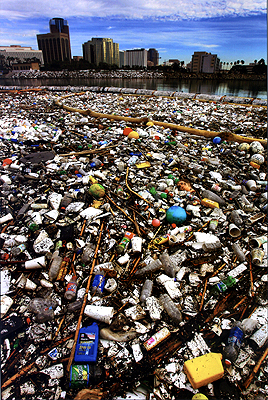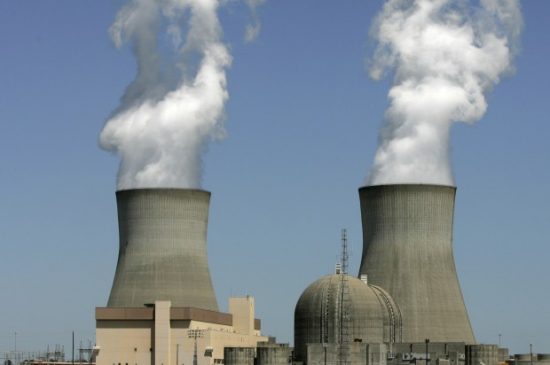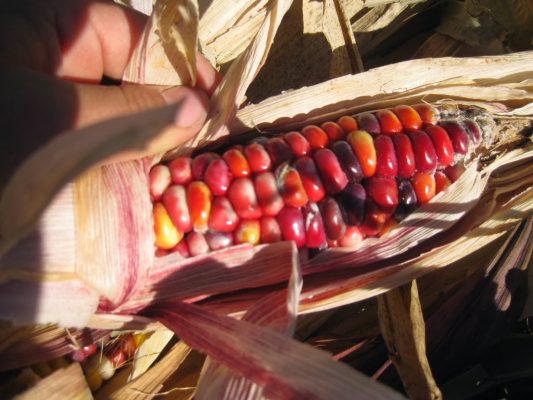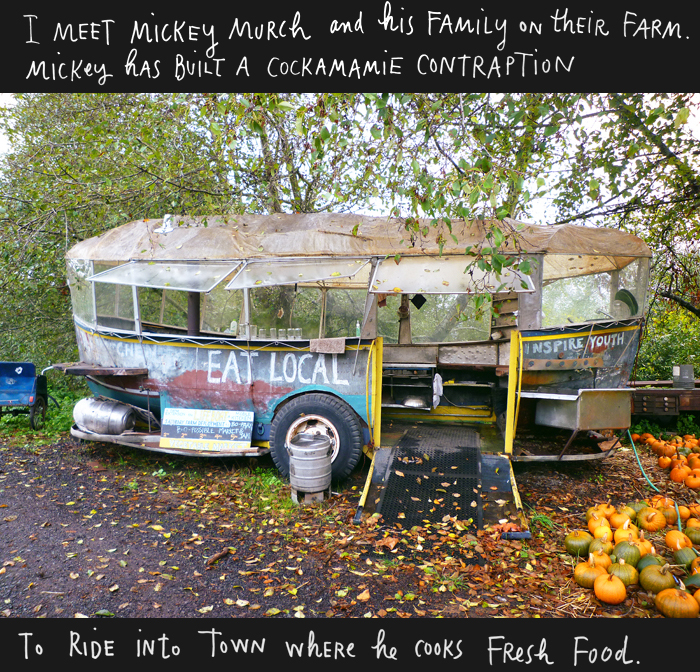 Residents of Washington D.C. started the new year with a shiny — albeit tiny — new tax. Shoppers who show up at stores without their own bags or boxes will need to start paying 5 cents each for them. In my view, this is an excellent idea, and long overdue. I’d love to see a tax like this applied nationally (even globally, if such a thing were possible).
Residents of Washington D.C. started the new year with a shiny — albeit tiny — new tax. Shoppers who show up at stores without their own bags or boxes will need to start paying 5 cents each for them. In my view, this is an excellent idea, and long overdue. I’d love to see a tax like this applied nationally (even globally, if such a thing were possible).
We’ve known about the massive environmental problems caused by an excess of plastic in general, and of plastic bags in particular, for decades. See Salon’s excellent Plastic bags are killing us for details. We know that only a small fraction of plastic bags get recycled, and that the vast majority end up in landfills or in the ocean. As of 1992, 14 billion pounds of trash were dumped into ocean annually around the world. The world’s largest landfill is now officially the Pacific Ocean — as of a few years ago, 100 million tons of plastic were swirling in the Pacific Gyre.
The way I see it, anyone who had been watching this news would have started refusing to accept plastic bags (or any bags, ideally) from stores years ago. But for whatever reason, people haven’t. Stand in line at virtually any grocery store and count the percentage of patrons bringing their own bags. To me, the DC tax seems like too little too late, if anything.
The lack of willingness on the part of consumers to give up the smallest conveniences for the sake of the environment is a tragic reminder of our collective complacency. Since people won’t voluntarily step up and do the right thing without a carrot or a stick to guide them, DC has decided to use a stick (taxes).

I recently got into a discussion on Twitter with @vmarks and @russnelson about whether the tax was a reasonable response to the crisis. Apparently libertarians, their opinion is that taxes represent “force,” and that some form of reward system would be more effective than a tax. Stores should incentivize canvas bags by giving discounts to those who bring their own. I have a couple of responses to that line of reasoning.
First, many stores already do this. That’s excellent, but it puts the cost burden on the store, rather than on the consumer, where it belongs. And it effectively means that stores that don’t reward personal bags are financially disadvantaged compared to stores that don’t. That, in turn, means the overall financial incentive is to NOT reward use of personal bags.
Second, voluntary participation rates are pretty low. Go to a store where personal bags are incentivized and count the number of consumers who do bring their own. There are still tons of new paper and plastic bags walking out the door every day. Unfortunately, we’re not in a position where we can afford to leave this up to personal choice. Too many people will put the small convenience of not keeping a personal bag or two in the car above the massive environmental destruction that results from them not making that choice.

Third, let’s take it as a given that the crisis must be addressed effectively, and that urgent global solutions are required. If you want to use a carrot-based system rather than stick-based, you might be tempted to say “Just require stores to use an incentive program.” I’m sure the numbers would look better if incentives were required, but do you see the irony here? You would have traded the stick of taxes (force) with the stick of requiring stores to participate (force). You would not have escaped the fact that the direness of the situation, combined with the complacency of both stores and consumers, requires a force-based approach.
The tax is minor, and it’s not a blanket tax. No one who does what they should be doing anyway (bringing personal bags) will ever have to pay it. The tax is present because we can’t wait for carrots and volunteerism to do the job.
I find it unfortunate that certain cross-sections of the population have such a knee-jerk reaction to taxation in general that taxes are always seen as problematic, even when they’re inexpensive and sensible.
The free market is responsible for this problem to begin with. Free markets, left to their own devices, will seldom take care of their own side effects. The right thing to do would be for the U.S. to stand up and be a world leader on this, to simply make plastic bags at grocery stores illegal. It should not be a matter of “personal choice” to use products that hurt us all so profoundly (i.e. it’s not like the choice of whether to wear a motorcycle helmet – a purely personal choice). But that’s not going to happen. The very least we can do is to financially punish those who make choices that hurt us all.
Agree/disagree? Leave a comment, and vote in the poll.
Update 01/10: China leapfrogs enviromental policy of other countries by banning plastic bags outright. The country expects to save 37 million barrels of oil annually (on top of the immense environmental benefit).






 Residents of Washington D.C. started the new year with a shiny — albeit tiny — new tax. Shoppers who show up at stores without their own bags or boxes will need to
Residents of Washington D.C. started the new year with a shiny — albeit tiny — new tax. Shoppers who show up at stores without their own bags or boxes will need to 


 It’s been a long time since I’ve been as inspired by a TV show as I am by Animal Planet’s
It’s been a long time since I’ve been as inspired by a TV show as I am by Animal Planet’s